Kenya: A women-only village is a sisterhood of support
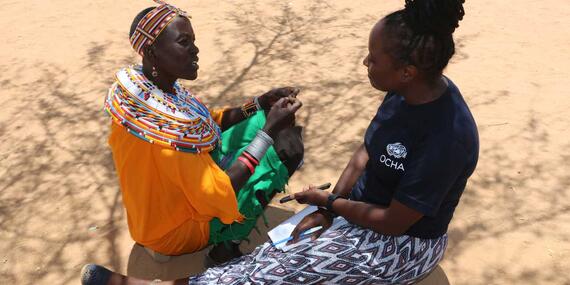
by Jane Kiiru
“I kept walking and walking, not knowing where I was going,” recalls Napaishai.* “All I knew is that I needed to get away from my husband, who continuously harassed me throughout our three-year marriage.” Napaishai was married at age 12 to her 40-year-old husband.
Kenya’s drought aggravated an already tense situation for Napaishai. All the livestock that she and her husband owned died. This forced her husband to search for menial jobs, which exacerbated tensions at home, especially when he failed to make any income and would then become more violent towards her.
After a few failed attempts, Napaishai escaped in September. It took her almost a week to walk from Narimurimo—a village in Samburu East—to Archers Post. There she found refuge at Umoja Women Village, a women-only village that hosts more than 30 women who are survivors of gender-based violence.
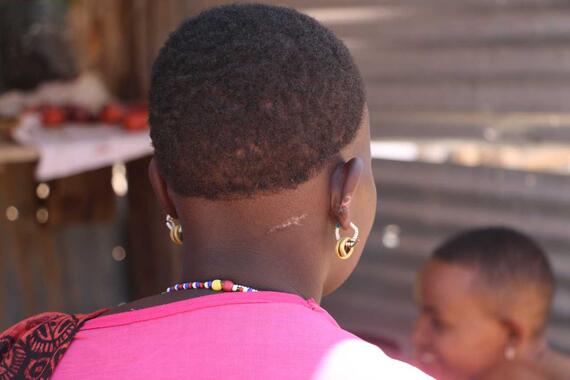
Napaishai’s story is not unique. Drought in Kenya’s Arid and Semi-Arid Lands (ASALs) is causing an increase in gender-based violence, including intimate-partner violence, like Napaishai experienced.
At least 4.35 million people are already going to bed hungry in the region. And in 2023, 6.4 million people in the ASALs will need humanitarian assistance.
These conditions force some men to leave home to seek fodder and water for livestock, or to find an alternate living elsewhere. Women and children are then left to fend for themselves, making them vulnerable to violence and sexual exploitation, especially as they must travel longer distances to access water and food. The result is that sexual violence against women and girls has increased, and child marriage and female genital mutilation are also increasing.
The situation is compounded by a likely fifth consecutive failed rainy season that is deepening needs and increasing the risks of gender-based violence.
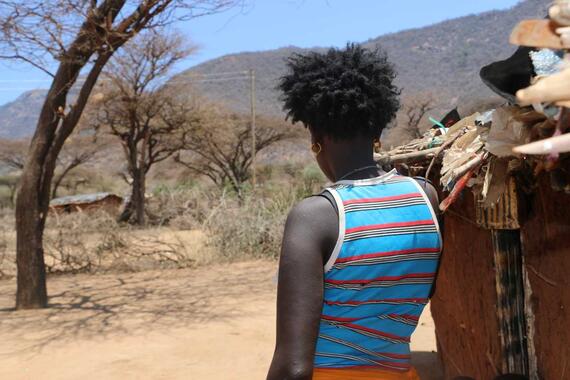
Zipporah’s story: A herder becomes a grass seller
“When the drought started, we had three cows and about 30 sheep and goats that we depended on,” said Zipporah,* a mother of three. She is from the same region as Napaishai and was also married at an early age.
The cows died first, followed by the goats and sheep. She explained: “When all the livestock were gone, the conflict between my husband and I started, as he could no longer provide for us sufficiently.”
His continuous violence forced Zipporah to move to her mother’s house.
“To provide for my children and for my livelihood, I walk for almost 25 km every day to harvest grass that I sell to families that still have livestock,” she said.
Zipporah was trained in financial management by the Pastoralist Community Initiative and Development Assistance (PACIDA-Kenya)—a community-based organization that is active in the drought response and a member of the ASAL Humanitarian Network. She has received a monthly cash transfer from PACIDA that has helped her children attend school and supplements her income from selling grass.
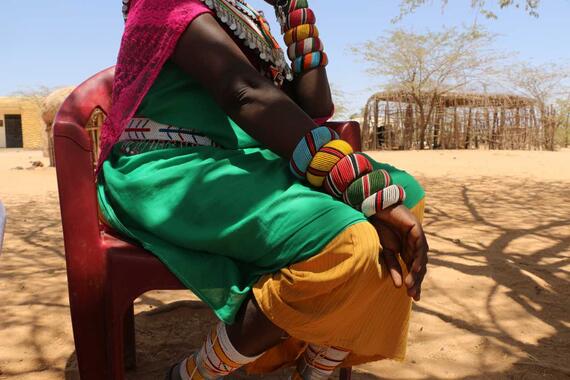
Mary’s story: Finally safe in a women-only village
“I ran away for my life, leaving behind my children,” explains Mary,* who left her home after being exposed to her husband’s extreme violence.
But Mary’s story has a happy ending; she and her children now live at the Umoja Women Village. Samburu Women Trust (SWT)—another community-based organization and member of the ASAL Humanitarian Network—reunited Mary with her children and provides her with cash assistance to help make ends meet.
The Umoja Women Village is supported by SWT, which offers cash transfers to eligible women in the village. To support each other, the women are encouraged to get involved in different businesses to buy from and support each other to ensure a cash flow within the village.
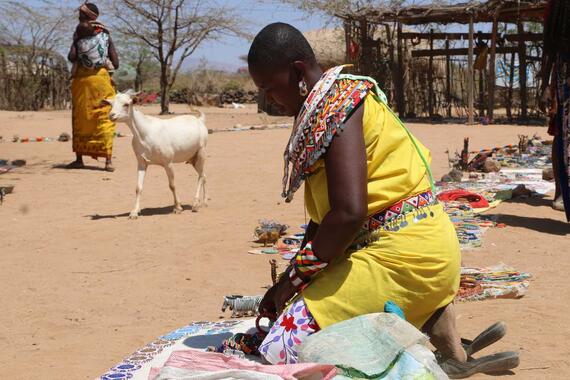
SWT also works with psychotherapists to offer psychosocial support, and with local authorities, including the chief, police and medics, to protect the GBV survivors. The women in the village have hailed the cash transfer programme as a key element in ensuring their survival and supporting their families, including sending their children to school.
The village was created 30 years ago by Rebecca Lolosoli, a local Samburu woman from Rift Valley, along with 14 gender-based violence survivors. The village promotes sisterhood above all.
*All names have been changed.
